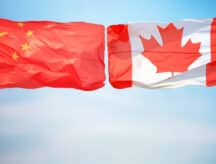Refugees more likely to file taxes than skilled workers after their first year in Canada
A new study from Statistics Canada has found that skilled workers are less likely to file tax returns the first year after landing than those who land in Canada as refugees.
The study was an overview of tax-filing trends of newly landed immigrants of working age (25-64), who landed from 1993 to 2019. It found that filing rates improved during the 1990s and remained stable.
Further, it says that between 2017-2019, 90% of newcomers file an income tax return within the first year or two of landing.
Discover if You Are Eligible for Canadian Immigration
Still, landing characteristics such as immigration class or education level were found to have an impact on filing rates.
Refugees have the highest filing rates
Newcomers who arrive in Canada as refugees were found to have the highest rate of filing. This is regardless of whether they were sponsored privately or by the government. Up to 95% of refugees filed an income tax return in the first two years of landing.
In contrast, economic immigrants who arrive through the Express Entry Federal Skilled Worker Program (FSWP) were the least likely to file. In 2017-2019, 77% of FSWP newcomers filed taxes.
Between 2017-2019, FSWP participants made up approximately 16% of all newly landed immigrants in their core working years (25-64). It was the third-largest immigration class after provincial programs and family class.
Newly landed immigrants from the Canadian Experience Class, provincial programs and family class arrivals all had filing rates of 89% or higher.
The Statistics Canada study explains that refugees were more likely to file taxes because they were more likely to access settlement services upon landing in Canada. This means they are generally more aware of the financial benefits they can access if they file a tax return.
Official language
Newcomers who indicated Quebec as their province of landing also had a higher rate of filing. The study says this is because Quebec has a separate program for skilled workers and does not use the FSWP.
Among Quebec Skilled Workers, 91% of newcomers filed taxes in 2017-2019.
The study also noted that French-only speakers had the highest filing rates. This is explained by the fact that those who speak “French only” are more likely to arrive in Quebec as QSWP participants and not as FSWP participants.
Quebec does not participate in the FSWP because it has a separate provincial immigration agreement with Immigration Refugees and Citizenship Canada (IRCC).
Newly landed immigrants in 2017-2019 in British Columbia had a filing rate of 89% and 87% filed in Ontario, which was the lowest rate among all the provinces and territories. This 2% difference seems small but 43% of new immigrants indicated Ontario as their province of landing. This means, proportionally speaking, the gap is bigger than it looks.
Education
Among immigrants who landed between 2009-2012, 13% of those with graduate degrees did not file an income tax return for at least five years after landing. The study suggests that this may be because high-skilled people get opportunities outside Canada and leave the country but notes that this is difficult to verify.
Benefits of filing taxes as a newcomer to Canada
The Government of Canada offers many benefits to anyone who files an income tax return.
For example, couples with children may be eligible for the Canada Child Benefit. This is a monthly, tax-free payment from the government to help families cover the costs of raising children. Permanent residents are eligible and so are temporary residents who have been in Canada for at least 18 months and their permit does not say “does not confer status" or "does not confer temporary resident status".
Some others include a quarterly GST (generalized sales tax) rebate for low-income Canadian residents and provincial/ territorial benefits that vary depending on the province of residence.
Benefit amounts always vary depending on income, marital status, and family size.
Tax in Canada
Anyone working in Canada has a portion of their income automatically deducted from their overall (gross) pay as income tax. This money goes to the Canadian government to help cover the costs of government-run services such as healthcare, infrastructure, education, and publicly funded childcare.
Each year anyone living and working in Canada must file their taxes with the Canada Revenue Agency (CRA). Filing taxes shows the CRA a person's total income from all sources and the CRA then evaluates if too much tax was paid, resulting in a refund, or if the person filing has not paid enough. In this case, they would be obligated to send a payment to make up the difference.
- Do you need Canadian immigration assistance? Contact the Contact Cohen Immigration Law firm by completing our form
- Send us your feedback or your non-legal assistance questions by emailing us at media@canadavisa.com




